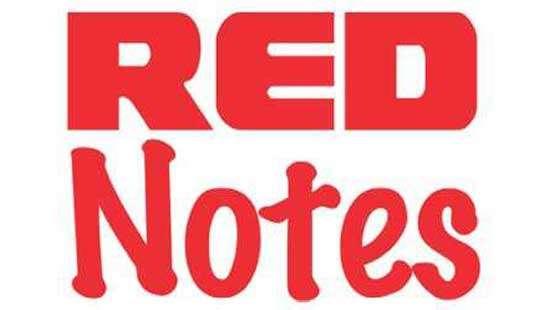Reply To:
Name - Reply Comment
Last Updated : 2024-04-20 00:00:00
Debt relief is now a call at all levels of state and society in Sri Lanka. The Prime Minister recently requested a three-year moratorium on debt repayments to India, the Government earlier  announced a debt repayment moratorium of one year for Small and Medium Enterprises (SME) with loans up to Rs. 300 million, and women’s groups called for the abolition of exploitative microfinance schemes during a protest held on February 27, in Colombo.
announced a debt repayment moratorium of one year for Small and Medium Enterprises (SME) with loans up to Rs. 300 million, and women’s groups called for the abolition of exploitative microfinance schemes during a protest held on February 27, in Colombo.
Why this sudden concern about debt, from the billions of US dollars in national debt, to the hundreds of millions of rupees in SME’s debt and down to the tens of thousands of rupees in women’s microfinance debt?Are these different levels of debt related, and what are their consequences?
The Sri Lankan economy is in crisis. A crisis generated by a fall in government revenues where the wealthy in this country are hardly taxed and a higher level of imports than what can be paid with the sum of exports, remittances and tourism-generated foreign income. And to make matters worse the prospects don’t look good, the global economy is stagnating this year and it has been aggravated by the Coronavirus. All this will have a disproportionate impact on the Sri Lankan economy with the fickle tourism industry undermined by the reduction in tourist travel with the Coronavirus, and that too following the significant tourist slow down after the Easter Sunday Attacks.
These recent problems aside, Sri Lanka’s economic problems were long in the making, with mounting national debt for decades, and efforts to roll over debt with consecutive IMF agreements. The IMF Standby Arrangement in 2009 and the IMF Extended Fund Facility in 2016, are the 15th and 16th IMF agreements reached by Sri Lanka. Such IMF agreements that come with stringent conditionalities have prescribed market friendly neo-liberal policies including to increase imports and the rapid flow of finance capital that have only thrown the country further into debt.
In this context, a debt ridden and stagnating economy raises the cost of capital and reduces demand of goods, in effect crippling SMEs, which are major employment creators. Next, when the economy slows down, rural incomes are also affected as the rural population increasingly depends on a mix of incomes combining rural livelihoods with incomes from urban, industrial and service sectors. Furthermore, rural women in particular get squeezed not just by falling household incomes but the extremely high interest charged by microfinance companiesand money lenders.
The alternative to this crisis should begin with barriers against the onslaught of market forces that not only entrap rural women in debt, but wipe out small businesses and even paralyse states like Sri Lanka. But when the Government seeks away out through the IMF, mandated to relieve governments from short-term financial problems, the IMF imposes long-term prescriptions that are to further open market forces.
This was the subject of a recent public discussion organised by the Jaffna People’s Forum for Coexistence with activist researchers from the international network of the Committee for the Abolition of Illegitimate Debt (CADTM). The analysis of CADTM was spot on showing how for example the tremendous corporate and banking debt is often bailed out by governments increasing the tax burden of citizens.
Furthermore, when government debt increases, there is a push towards austerity where social services and welfare are cut. Sadly, such cuts are coupled with microfinance schemes and the myth that people can both increase their incomes and pay for private services including healthcare and education
with such small loans.
"The alternative to this crisis should begin with barriers against the onslaught of market forces that not only entrap rural women in debt, but wipe out small businesses and even paralyse states like Sri Lanka"
Exactly two years ago, with a major protest against predatory microfinance schemes, the Jaffna District Co-operative Council made the following demands: “all microfinance companies that use unethical and illegal practices be banned, an interest rate cap with an effective annual interest rate not exceeding 25% be imposed, so that all predatory loan schemes are immediately stopped, cancel all existing predatory microfinance loans or provide a moratorium for two years necessary to restart sustainable economic activity and expand low interest  government credit schemes that could generate sustainable rural livelihoods and rebuild the economy.” Eventually, a Central Bank interest rate cap of 35% was imposed in December 2018, but even that high rate has been effective in flushing out a number of the unscrupulous microfinance companies, as most of them were charging between 40% and 240% annualised interest rates. Indeed, the rural indebtedness situation in the North has been slowly improving with the co-operatives actively providing lower interest small loans.
government credit schemes that could generate sustainable rural livelihoods and rebuild the economy.” Eventually, a Central Bank interest rate cap of 35% was imposed in December 2018, but even that high rate has been effective in flushing out a number of the unscrupulous microfinance companies, as most of them were charging between 40% and 240% annualised interest rates. Indeed, the rural indebtedness situation in the North has been slowly improving with the co-operatives actively providing lower interest small loans.
Into this mix, the IMF after a recent staff visit to Sri Lanka, had the following to say in a statement on February 7, 2020: “Caps on lending rates and the loan repayment moratorium for small and medium enterprises should be temporary, to avoid unintended distortions and inefficiencies in financial intermediation.” That is a worrying signal from the IMF, which is only concerned about so-called market distortions to the detriment of the economic lives of people, and it should be closely watched whether the Government will buckle under such pressure.
When Third World countries go to the IMF with a begging bowl for its blessing, so that global finance capital will flow in with an IMF guarantee, the vicious cycle of austerity and market forces can shred economies to bits. It is like the Tamil saying of the beggar who goes to a house and then cries, “pichchai vendaam naayaip pidi” (don’t want your charity, hold the dog which is about to bite me). That has been experienced with the IMF from crisis to crisis around the world over the past many decades.
During the engaging discussion with CADTM in Jaffna, one local co-operative leader involved in the major low interest credit scheme underway in the North,and now reaching over ten percent of the population, put forward an insightful challenge.
He said there is a major struggle now between finance companies and co-operatives to engage the people, one to entrap them into predatory loans and the other to provide productive credit. He asked if we are ready for that struggle in our communities. Drawing from that there is also a major struggle to be fought against the IMF, which is about the freedom of the market to exploit people and the democratic freedoms of the people to collectively chart their economic lives.

Add comment
Comments will be edited (grammar, spelling and slang) and authorized at the discretion of Daily Mirror online. The website also has the right not to publish selected comments.
Reply To:
Name - Reply Comment
On March 26, a couple arriving from Thailand was arrested with 88 live animal
According to villagers from Naula-Moragolla out of 105 families 80 can afford
Is the situation in Sri Lanka so grim that locals harbour hope that they coul
A recent post on social media revealed that three purple-faced langurs near t